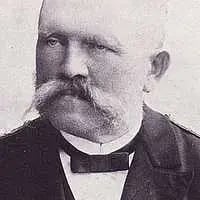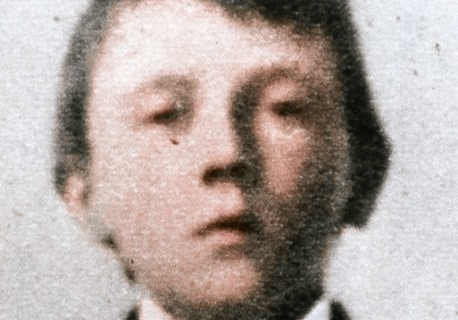"The Profound Impact of Adolf Hitler's Father's Death: A Turning Point in History"
Discover how Adolf Hitler's life and personality were shaped by the sudden death of his father, Alois Hitler. Explore the psychological, financial, and emotional effects that influenced his future decisions and historical legacy."


The Impact of Hitler's Father's Death on His Life
Adolf Hitler’s name is often associated with the atrocities of World War II, the Holocaust, and his rise to power in Nazi Germany. However, understanding the man behind these historical events requires delving into his formative years and exploring the experiences that shaped his personality and ideology. One significant event in his early life was the death of his father, Alois Hitler, in 1903. Alois’s demise had a profound and far-reaching impact on young Adolf, influencing his emotional state, educational pursuits, and future aspirations. This blog explores the nuanced ways in which Alois Hitler’s death affected Adolf’s life trajectory.
A Troubled Relationship with Alois Hitler
To comprehend the impact of Alois Hitler’s death, it is crucial to first understand the nature of their relationship. Alois was a strict, authoritarian figure who demanded discipline and obedience from his children. As a customs officer, he brought a regimented lifestyle into the household. Adolf often clashed with his father, particularly regarding his academic and career aspirations. While Alois wanted Adolf to follow in his footsteps and pursue a career in civil service, Adolf harbored dreams of becoming an artist. This fundamental conflict created a strained and contentious dynamic between the two.
The Immediate Aftermath of Alois Hitler’s Death
Alois Hitler died suddenly of a lung hemorrhage on January 3, 1903, when Adolf was just 13 years old. For Adolf, this was a pivotal moment that marked a significant change in his life. While the event brought relief from his father’s strict rules and constant criticism, it also left him without a stable guiding figure during his formative teenage years.
Adolf’s academic performance, which had already been inconsistent, began to deteriorate further after his father’s death. Without Alois’s authoritarian presence, Adolf lacked the motivation to excel in school. This decline in academic discipline foreshadowed his later struggles to find a clear direction in life.
Financial Struggles and Dependence on Klara Hitler
The death of Alois also had significant financial implications for the Hitler family. Although Alois had secured a pension before his death, the family’s economic stability became precarious. Adolf’s mother, Klara Hitler, took on the responsibility of managing the household. Her nurturing and protective nature contrasted starkly with Alois’s authoritarianism, providing Adolf with a sense of emotional security.
However, this shift also made Adolf increasingly dependent on his mother. Klara supported his artistic ambitions, even as his lack of direction frustrated her. The absence of Alois’s domineering influence allowed Adolf to indulge in his artistic pursuits, but it also deprived him of the discipline and structure that might have steered him toward a more conventional path.
The Role of Alois’s Death in Shaping Hitler’s Personality
The loss of his father at a young age contributed to Adolf’s complex personality. On one hand, it freed him from the constraints of his father’s expectations, allowing him to explore his artistic passions. On the other hand, it exacerbated his feelings of insecurity and resentment. Adolf’s failure to gain admission to art school later in life intensified these feelings, leading him to seek external sources to blame for his personal struggles.
Historians argue that the absence of a strong paternal figure during Adolf’s teenage years contributed to his difficulty in accepting authority later in life. His rebellious nature, initially directed at his father, evolved into a broader disdain for societal norms and structures. This rebellious streak would become a defining feature of his political ideology.
A Turning Point in Adolf’s Aspirations
After Alois’s death, Adolf’s dreams of becoming an artist took center stage. He moved to Vienna in 1907, hoping to secure a place at the prestigious Academy of Fine Arts. However, his repeated rejections shattered these aspirations and plunged him into a period of poverty and isolation. During this time, Adolf began to develop the extreme nationalist and anti-Semitic views that would later define his political career.
It is worth noting that while Alois’s death allowed Adolf to pursue his artistic ambitions temporarily, the lack of a supportive and guiding figure contributed to his failure to achieve these goals. This failure left a void that Adolf sought to fill with radical ideologies and political ambitions.
The Psychological Impact of Paternal Loss
Psychologists have long studied the effects of losing a parent during childhood or adolescence. The death of a father often leaves children feeling unanchored and vulnerable. For Adolf, who already had a contentious relationship with Alois, the loss created a mixture of relief and unresolved emotional conflict. This duality may have played a role in shaping his future interactions and relationships.
Adolf’s inability to resolve his feelings toward his father manifested in his later life as a deep need for control and dominance. His authoritarian leadership style and obsession with loyalty can be traced back to the lack of closure and guidance following his father’s death. The vacuum left by Alois’s absence was filled by Adolf’s ambition to establish himself as a powerful and unchallenged figure.
Long-Term Consequences of Alois’s Death
The death of Alois Hitler had long-lasting implications for Adolf’s life. It set off a chain of events that shaped his personality, ambitions, and worldview. Without Alois’s strict oversight, Adolf was free to pursue his passions, but he also lacked the structure and discipline that might have prevented his descent into radicalism. His relationship with his mother became a cornerstone of his emotional life, and her death in 1907 further deepened his sense of loss and isolation.
The financial instability following Alois’s death also played a role in Adolf’s later resentment of the socio-political system. His personal struggles during this period became the foundation for his belief that Germany needed a strong leader to restore order and prosperity.
Conclusion
The death of Alois Hitler was a turning point in Adolf Hitler’s life. It marked the end of a tumultuous father-son relationship and the beginning of a journey marked by insecurity, rebellion, and unfulfilled ambitions. While Alois’s death freed Adolf from immediate authoritarian control, it also deprived him of the guidance and stability that might have directed his life along a different path. The psychological and emotional effects of this loss reverberated throughout Adolf’s life, influencing his personality, decisions, and, ultimately, his place in history.

